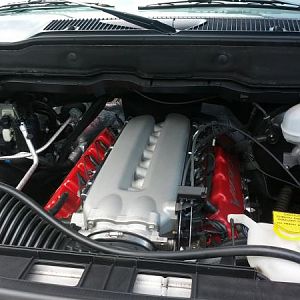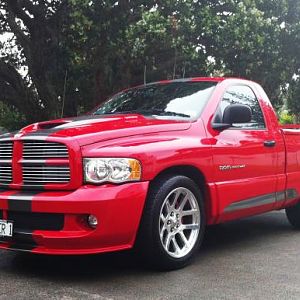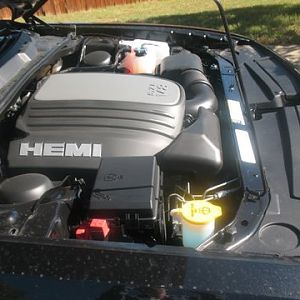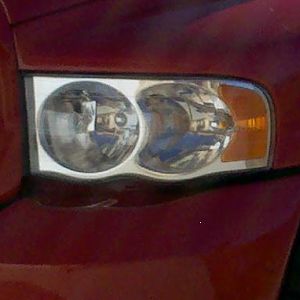Has anyone used, or added more toulene to their fuel? It sounds pretty logical, from the research ive done, you can buy it at any ace hardware, ive read dont add no more than 30% of how much fuel you have.
Article I read:
Here's a great read on Toulene :
Here is an article on "Rocket fuel" for our cars.
Toulene
R+M/2...114
Cost...$2.50/gal
Mixtures with 92 Octane Premium
10%...94.2 Octane
20%...96.4 Octane
30%...98.6 Octane
Notes: Common ingredient in Octane Boosters in a can. 12-16 ounces will only raise octane 2-3 *points*, I.e. from 92 to 92.3. Often costs $3-5 for 12-16 ounces, when it can be purchased for less than $3/gal at chemical supply houses or paint stores.
Rocket fuel FAQ
Copyright ã 1999,2000 by Eliot Lim This paper may be freely distributed, provided it is distributed in its entirety
Last revised by Eliot Lim: February 8, 2000
Last augmented by Charles Smith: January 6, 2003
Background
In late 1997 I became the lucky owner of 1 out of 150 1998 Porsche 993 Targas, the very last of the air cooled classics. As I drove it through the winter of 1997 and into the spring of 1998 I noticed that the engine lost some of its sweetness. Since this behavior was strongly related to ambient and engine temperature I suspected that the engine electronics were retarding its ignition timing due to insufficient fuel octane.
I started experimenting with octane boosting by first adding small doses of over the counter octane boosters and noticed immediate improvement. The engine ran smoother and quieter, was more willing to rev and had noticeably sharper throttle response. The octane shortage was confirmed by the sticker on the filler cap that stated that 93 octane fuel was needed. Since the highest octane rated fuel that was commonly available in Washington state is 92, I decided to investigate long term cost effective octane boosting so that I could fully enjoy the performance that this car offered.
My other car at the time, a 1990 Audi V8 quattro had an even more dramatic response to octane boosting. I managed to convince a few good friends to try it and the reaction was overwhelmingly positive. When I attempted a broader based dissemination of this exciting find, I was greeted largely by broad unyielding skepticism and plenty of FUD (fear, uncertainty, doubt) regarding toxicity, safety and engine damage. There arose a need to more clearly explain the details of octane boosting, hence giving rise to this article.
Q: Will my car benefit from octane boosting?
A: Consumer organizations have effectively emphasized the larger markups that oil companies charge for high octane gasoline, implying that for most vehicles higher octane fuel is a complete waste of money. It has been quite a long time since the consumer alert was issued. Since then engine technology has evolved greatly, while people's perceptions generally have not.
Modern vehicles now use computerized engine management systems that can react to engine knock and retard ignition timing if low octane fuel is being used. Consequently cars are now being manufactured with very high compression ratios that appear to give good fuel economy and at the same time good performance. This combination does assume that fuel of adequate octane is being used.
Q: Why bother to boost octane at all since my engine can run just fine on lower octane fuel?
A: For a high compression engine to run on low octane fuel, the engine management system will need to retard the ignition timing to prevent preignition or pinging. Retarding the ignition timing means that the firing of the spark plug is delayed until a later moment in the compression stroke. It does not take much to see that a later onset of combustion means that the combustion is less complete, which in turn mean less power and poorer fuel economy. It is possible that the casual driver will still come out ahead in terms of saving money by using low octane fuel, but the retarded ignition advance also means a rougher running engine and a much duller throttle response. Thus octane boosting is not necessarily of interest to all motorists but rather the enthusiasts.
For turbocharged or supercharged engines, insufficient octane will also lead the engine management system to curtail the amount of boost which in turn defeats the purpose of these engines.
Q: How did you discover using toluene?
A: Someone came across a web page that described various DIY home brew octane booster formulas. One of which used toluene as its main ingredient. As a Formula 1 racing fan of many years, I recalled that toluene was used extensively in the turbo era in the 1980s by all the Formula 1 teams. The 1.5 liter turbocharged engines ran as much as 5 bars of boost (73 psi) in qualifying and 4 bars (59 psi) in the actual race. Power output exceeded 1500bhp, which translates into 1000bhp/liter, an astronomical figure.
A motorsports journalist, Ian Bamsey, was able to obtain Honda's cooperation for his book "McLaren Honda Turbo, a Technical Appraisal". The book documents the key role that the toluene fuel played in allowing these tiny engines to run so much turbo boost without detonation. The term "rocket fuel" originated from the Formula 1 fraternity as an affectionate nickname to describe its devastating potency. Thus I concluded that I should focus my research on using toluene for my octane boosting project.
Individuals with good long term memory will recall that when unleaded gasoline was first introduced, only low octane grades were available. While it is not entirely clear that high octane super unleaded gas came about as a result of the advances in fuel technology in Formula 1, there is every reason to suspect that this is indeed the case, since many of the major oil companies were involved in the escalating race to develop increasingly potent racing fuel during this era.
Q: Why do you think toluene is better than other types of octane boosters?
A: Several reasons:
Mindful of the evil reputation of octane boosters in general, toluene is a very safe choice because it is one of the main octane boosters used by oil companies in producing ordinary gasoline of all grades. Thus if toluene is indeed harmful to your engine as feared, your engine would have disintegrated long, long ago since ordinary pump gasoline can contain as much as 50% aromatic hydrocarbons.
Toluene is a pure hydrocarbon (C7H8). i.e. it contains only hydrogen and carbon atoms. It belongs to a particular category of hydrocarbons called aromatic hydrocarbons. Complete combustion of toluene yields CO2 and H2O. This fact ensures that the entire emission control system such as the catalyst and oxygen sensor of your car is unaffected. There are no metallic compounds (lead, magnesium etc), no nitro compounds and no oxygen atoms in toluene. It is made up of exactly the same ingredients as ordinary gasoline. In fact it is one of the main ingredients of gasoline.
Toluene has a RON octane rating of 121 and a MON rating of 107, leading to a (R+M)/2 rating of 114. (R+M)/2 is how ordinary fuels are rated in the US. Note that toluene has a sensitivity rating of 121-107=14. This compares favorably with alcohols which have sensitivities in the 20-30 range. The more sensitive a fuel is the more its performance degrades under load. Toluene's low sensitivity means that it is an excellent fuel for a heavily loaded engine.
Toluene is denser than ordinary gasoline (0.87 g/mL vs. 0.72-0.74) and contains more energy per unit volume. Thus combustion of toluene leads to more energy being liberated and thus more power generated. This is in contrast to oxygenated octane boosters like ethanol or MTBE which contain less energy per unit volume compared to gasoline. The higher heating value of toluene also means that the exhaust gases contain more kinetic energy, which in turn means that there is more energy to drive turbocharger vanes. In practical terms this is experienced as a faster onset of turbo boost.
Chevron's published composition of 100 octane aviation fuel shows that toluene comprises up to 14% alone and is the predominant aromatic hydrocarbon. Unfortunately composition specifications for automotive gasoline is harder to pin down due to constantly changing requirements.
Chevron's web site also describes the problems of ethanol being used in gasoline.
MTBE was heavily touted as a clean additive several years ago, and became a key ingredient in reformulated gasoline that is sold in California. But recently new studies arose that showed that MTBE was far more toxic than previously imagined. Organizations such as oxybusters have formed around the country to eliminate the use of MTBE in gasoline and several states, including California have passed new laws to eventually outlaw MTBE.
Q: How much toluene should I use per tank of gas?
A: Octane ratings can be very easily calculated by simple averaging. For example, the tank of an Audi A4 1.8TQ is 15.6 gallons. Filling it with 14.6 gallons of 92 octane and 1 gallon of toluene (114 octane) will yield a fuel mix of:
(14.6 * 92) + (1 * 114) / 15.6 = 93.4
The Audi A4 1.8T is a good example of a car that has very high octane needs if it has been modified to produce more turbo boost. The base compression ratio of this car is a very high 9.5:1 and when an additional 1 bar (14.7 psi) of turbo boost is applied on top of it, the resulting effective compression ratio is way beyond what 92 or 93 octane fuel can ever hope to cope with. Most modified 1.8Ts running without octane enhancement are running with severely retarded ignition timing and boost.
Q: Will toluene damage my engine or other parts of my car?
A: A 5 or 10% increase in the aromatic content of gas will most likely be well within the refining specifications of gasoline defined by ASTM D4814, which specify an aromatic content of between 20% and 45%. What this means is that if the 92 octane gas that you started off with had an aromatic content of say 30% and you increased it by 10% to 40% you would still be left with a mix that meets the industry definition of gasoline. So the above question would amount to: "Will gasoline damage my engine or other parts of my car?"
Even in the unlikely event that the 92 octane gas has a aromatic content of 45% the resulting mix would still be within the bounds of gasoline sold in other countries.
Q: Isn't toluene an extremely toxic substance?
A: The common perception of toluene's toxicity far exceeds reality. Fortunately there is an ample body of information available that specifically addresses this question. Toluene is more toxic than gasoline but it is certainly not agent orange or cyanide. See the Agency for Toxic Substances link below in the reference section.
US Environmental Protection Agency Chemical Summary
US Agency for Toxic Substances and Disease Registry (ATSDR)
National priority list of toxic substances
Note that the ATSDR also rates gasoline as a hazardous substance.
Mobil's spec sheet for toluene even goes as far as saying that "Based on available toxicological information, it has been determined that this product poses no significant health risk when used and handled properly."
Q: Isn't toluene an active ingredient of TNT (trinitrotoluene) and is thus deadly?
A: In the same way that cotton wool is the base ingredient of nitrocellulose (guncotton) which in turn is the main ingredient in modern smokeless gunpowder. Using this reasoning one could conclude that cotton wool is a deadly substance. This question reflects a poor understanding of basic chemistry but unfortunately it has been asked often enough.
Q: How much does toluene cost, and where can I buy some?
A: $10/gallon in a one gallon can at a hardware store, about $6/gallon in a 5 gallon can from a chemical supply or paint store, or $3/gallon in a 55 gallon drum from a chemical supply warehouse.
A2: Experience of Charlie Smith in 2002. Sherwin Williams paint stores have it for $5.00 in a gallon can. They can order it in a 5 gallon can at $4.00 / gallon. They can order 55 gallon drums for about the same cost per gallon, but you have to have a dock unloading facility to get the drum(s) off of the delivery truck.
Q: Can I just dump in 100% toluene into the tank like the F1 racers? vroom vroom vroom
A: First of all, the F1 racers did not use 100% toluene, but 84%. The other 16% in their brew is n-heptane, which has an octane rating of zero. The reason for this strange combination is because the F1 rocket fuel was limited to the rules to being of 102 RON octane. The n-heptane is "filler" to make the fuel comply with the rules.
Because toluene is such an effective anti knock fuel it also means that it is more difficult to ignite at low temperatures. The Formula 1 cars that ran on 84% toluene needed to have hot radiator air diverted to heat its fuel tank to 70C to assist its vaporization. Thus too strong a concentration of toluene will lead to poor cold start and running characteristics. I recommend that the concentration of toluene used to not exceed what the engine is capable of utilizing. i.e. Experiment with small increases in concentration until you can no longer detect an improvement.
Q: Why not simply use racing gasoline or aviation fuel?
A1: Most types of aviation fuel have very high lead content, which would rule out cars equipped with catalytic converters. Most piston engined aircraft burn leaded fuel. Also aviation fuel has a very different hydrocarbon mix to optimize volatility properties at high altitude.
A2: Racing gasoline could be a much more convenient way to run high octane fuel compared to having to constantly mix in toluene with each fill up. There are, however a few caveats:
You don't know for sure if you are really getting what is being advertised. You should find out if the fuel inspectors verify the actual octane of the racing gasoline in addition to ordinary gasoline. If you paid $3/gallon and only got 94 or 95 octane instead of 100 octane you may conclude erroneously that your car does not benefit from octane boosting.
You don't know what octane boosters are used in the racing gasoline. The worst case scenario is buying leaded racing gasoline without knowing it. Unleaded racing gasoline may still contain damaging octane boosters like MMT or methanol. A very high alcohol content will lead to fuel line erosion, accelerated fuel pump wear, very poor fuel economy and possibly lower performance, as alcohols have a less impressive MON rating than aromatics.
It takes smaller quantities of toluene to achieve the same octane boost compared to 100 octane racing gas. I have not seen unleaded racing gas for sale that exceeds the octane rating of toluene.
Since toluene is not officially sold as a fuel, gas taxes do not apply. Also racing gasoline tend to have higher markups being of interest to the performance minded enthusiast and thus is very likely to be more expensive to buy and use long term than toluene, which is typically used in more mundane applications like paint thinner.
Q: Ok, what is the catch?
A: It should be mentioned that in the US, efforts are underway to reduce the aromatic content of gasolines in general as a higher aromatic content leads to higher benzene emissions. Benzene is an extremely toxic substance. However it should also be noted that the proportions that is being discussed in this FAQ is relatively small and in the grand scheme of things is probably insignificant. Moreover, the industrial standard for defining gasoline composition allows plenty of leeway in aromatic content and the proportions present in US gas is already lower than most other countries. I therefore feel that the information provided here is useful to a performance minded car enthusiast while not being significantly detrimental to the environment.
Q: What safety measures can you recommend in handling toluene?
A: The following is a good reference guide:
Q: Do you have testimonies of others who have tried this?
A: Some samples of feedback is reprinted with the names removed below. You may contact me if you wish to contact the respondents directly.





